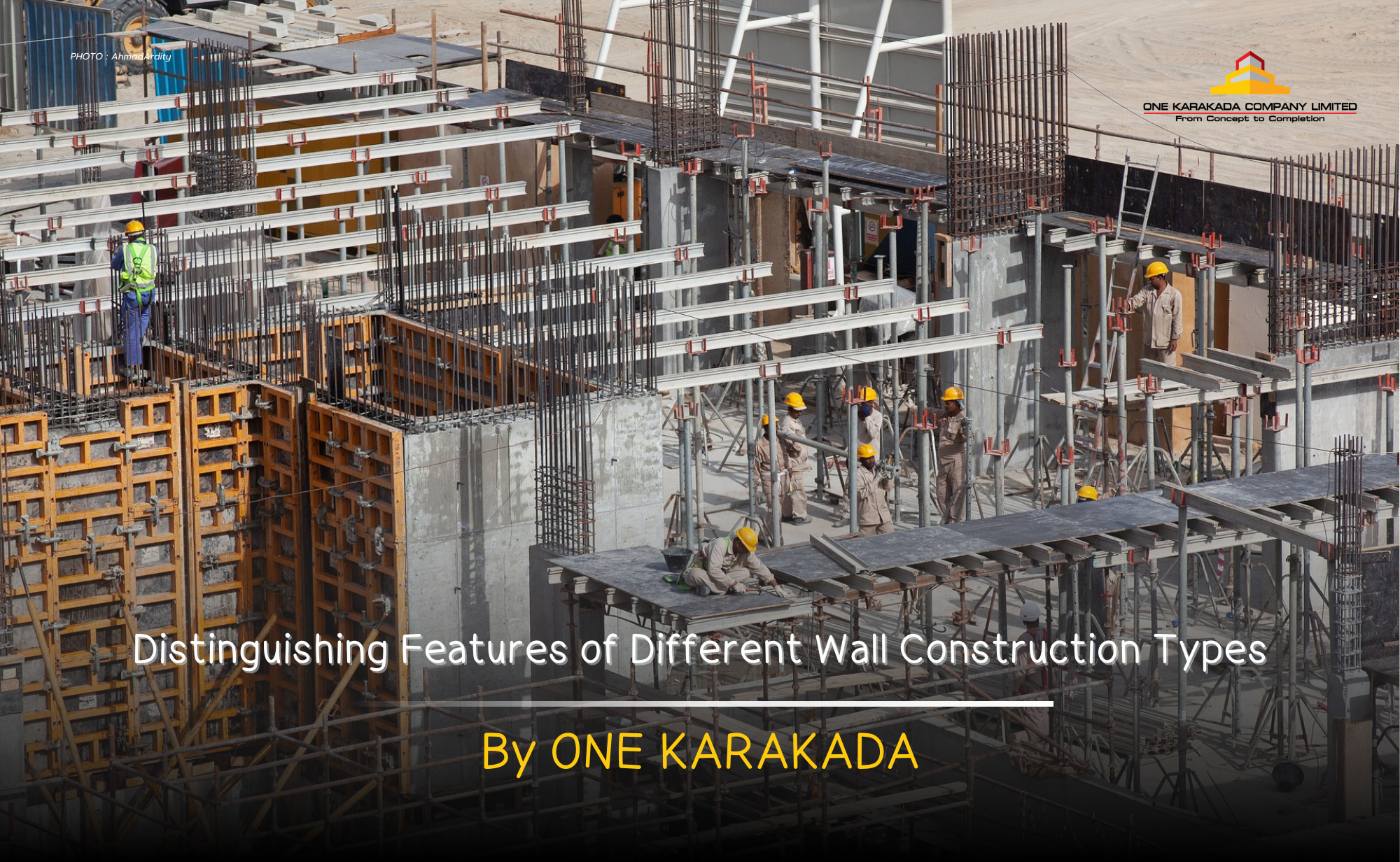Wall construction plays a crucial role in building projects, serving various purposes that contribute to the structural integrity, comfort, aesthetics, and safety of a structure. Wall construction can be categorized into several types based on the materials and techniques employed, each suited for specific applications.
Brick Walls
Clay Brick Walls: Constructed using clay bricks fired at high temperatures, offering exceptional strength and weather resistance but carrying significant weight.
Concrete Block Walls: Utilizing larger and lighter concrete blocks compared to clay bricks, enabling faster construction but requiring precise masonry work to prevent cracking.
Aerated Concrete Walls: Employing lightweight aerated concrete blocks that provide thermal and acoustic insulation but exhibit brittleness and demand specialized construction techniques.
Reinforced Concrete Walls
Reinforced Concrete Walls: Incorporating concrete reinforced with steel bars to enhance strength, commonly used in high-rise buildings or structures requiring high load-bearing capacity, effectively handling tensile and compressive forces.
Lightweight Structural Walls
Light Steel Frame Walls: Utilizing a lightweight steel or galvanized steel frame as the skeleton and attaching sheet materials like gypsum or fiber cement boards to form the wall, suitable for temporary structures or buildings requiring rapid construction.
Timber Frame Walls: Employing a timber frame as the structure and affixing sheet materials like gypsum or fiber cement boards, commonly used in residential dwellings or single-story buildings.
Key Differentiators
Materials and Strength
- Brick Walls: Offer high strength and durability but carry significant weight.
- Reinforced Concrete Walls: Provide the highest strength, effectively bearing weight and tensile forces.
- Lightweight Structural Walls: Exhibit low weight and rapid construction but may have lower strength compared to other wall types.
Application and Characteristics
- Brick Walls: Ideal for applications requiring moderate to high strength and durability.
- Reinforced Concrete Walls: Suitable for structures demanding exceptional strength and resilience, such as high-rise buildings.
- Lightweight Structural Walls: Appropriate for construction scenarios seeking speed and ease of installation, such as temporary structures or buildings not requiring heavy load-bearing capacity.
Cost and Time
- Brick Walls: Demand longer construction time and incur higher costs.
- Reinforced Concrete Walls: Carry a higher price tag but can reduce construction time with proper planning.
- Lightweight Structural Walls: Offer lower costs and rapid construction but may require special maintenance for long-term durability.
The choice of wall construction depends on the specific requirements and construction environment. Each type of wall presents distinct advantages and disadvantages, making it crucial to consider the desired properties, including material, strength, weight, installation, and maintenance, when selecting the appropriate wall solution.
…
ONE KARAKADA Co., Ltd. stands out as a premier design and build construction company in Thailand, with a specialized focus on developing GMP-standard factories. Their expertise is not limited to this niche, as they also excel in constructing general factories and warehouses.
The company’s commitment to international quality standards is evident in their use of prefabricated structures that promise durability and efficiency. With a dedicated team of engineering and architectural experts, ONE KARAKADA Co., Ltd. ensures meticulous oversight of every construction phase, guaranteeing that each project not only meets but exceeds the highest industry standards. This approach has cemented their reputation as a leader in the Thai construction sector, delivering projects that are both innovative and reliable.

